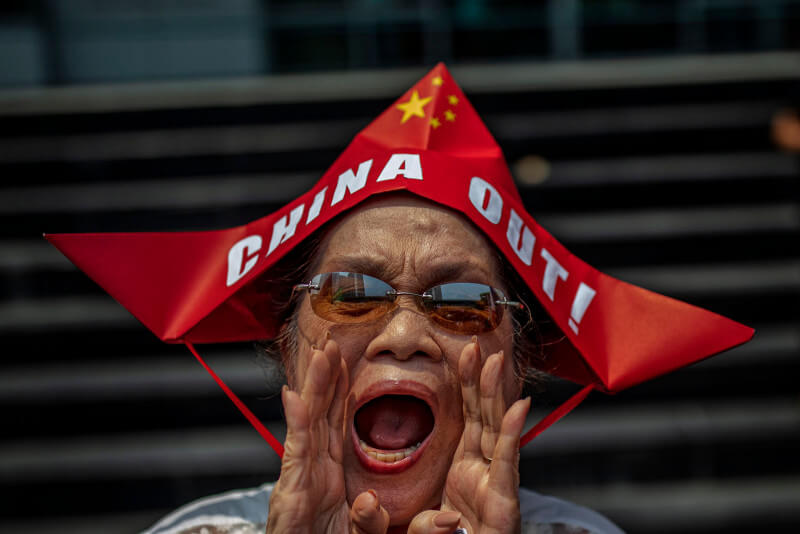The Philippines’ new armed forces chief, General Gilbert Gapay, reiterated the importance of defence ties with the United States (US) as the country continues to cosy up to China. Gapay said, “While our ties with China are warming up, it doesn’t mean we are abandoning our ties with the United States and other traditional allies, we are maintaining all these ties with allied countries.” The statement comes in light of President Roberto Duterte’s decision to cooperate with Beijing, despite growing tensions in the South China Sea (SCS).
The SCS is becoming a vital flashpoint in US-China relations, and last month the US imposed sanctions on 24 state-owned Chinese companies that allegedly participated in building disputed artificial islands in the disputed waters. Last week, President Duterte permitted the blacklisted Chinese firms to participate in infrastructure programs in Sangley point, generating uneasiness in the nation’s Navy. The proposed project pertains to Sangley Point International Airport (SPIA), a joint venture between China Communications Construction Corporation (CCCC) and taipan Lucio Tan’s MacroAsia Corporation.
The Philippine Navy is opposing the plan by the provincial government to boot the military service command out of Sangley Point in Cavite to pave the way for the airport project that is expected to ease congestion at Manila’s Ninoy Aquino International Airport. Citing the involvement of the CCCC as a cause for concern, Vice Adm. Giovanni Carlo Bacordo, the Navy’s flag officer in command, said that the Chinese company’s “role in the militarization” of the SCS had “raised eyebrows” among retired and active security officials over the SPIA project. In this context, the Navy wanted to keep its presence at the strategically located Sangley Point, a former US naval base, and added, “All the more we want to remain there so to ensure that there are no security violations.”
The military’s position is contrasted by the country’s political head, who, back in 2016, emphatically stated, “I announce my separation from the United States … both in military, not maybe social, but economics also. America has lost.” Since then, tensions between Washington and Beijing have only increased, and both countries have increased their military presence in the SCS region. In a bid to ease tensions, the Philippines announced last month that it will refrain from conducting joint naval exercises in the contested waters. Furthermore, Filipino Defence Secretary Delfin Lorenzana said, “President Rodrigo Duterte has a standing order to us, to me, that we should not involve ourselves in naval exercises in the South China Sea except our national waters, the 12-mile distance from our shores.”
The Philippines made its stance on the matter clear when President Dutere remarked that his country “cannot afford a war” with China and even went to the extent of calling himself “inutil” (useless) in defending the nation’s sovereignty in the West Philippines Sea. The President gave the latest airport project at Sangley the green light, following which the Navy clarified its position that it was “firmly against being evicted out of Sangley” but was not against the SPIA project itself, stating, “The project can go on.… We can coexist in Sangley without necessarily booting us out.”
On the topic of the US-China rivalry, Filipino Foreign Secretary Teodoro Locsin Jr. said, “It benefits the Philippine interests that we have a US presence in the region, I’ve said that very clearly. It is the same as the presence of Great Britain of the European coast in the old days of the balance of power,” and added, “Again, we have a balance of power situation. Yes, we need the US presence in Asia.” However, Locsin’s statements have contrasted the position of the President. Last month, the Foreign Secretary called for a “severe response” against Chinese military drills in the disputed, while Duterte maintained that the Philippines should “not get involved” and refrained from conducting naval exercises in the troubled waters of the SCS. The Philippines, it appears, is walking the tightrope in balancing its policies between Washington and Beijing as the two superpowers compete for influence in the region. This has, in turn, revealed fractures in relations between the Duterte administration and the armed and naval forces.

